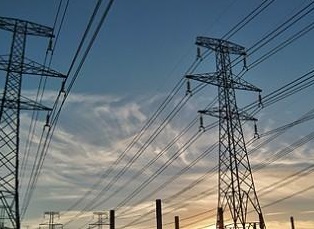Dam - What a Good Idea
Construction of the first grid-scale electricity storage facility to be built in Britain for more than 30 years could begin as early as 2018 following the granting of...
Read Full Article
The Government should redesign its Capacity Market - a subsidy scheme designed to minimise the risk of electricity blackouts - to incentivise innovative energy storage and demand side response (DSR) technologies that could make the UK energy grid cleaner, more flexible and secure, the Energy and Climate Change Committee says.
Launching the Committee's final report that sets out the energy policy implications of leaving the EU, its Chair Angus MacNeil MP, said: "The Government must get a move on and encourage the energy market to embrace smart technological solutions like energy storage and demand side response. There is an incredible opportunity for the UK to become a world leader in these disruptive technologies. Yet our current energy security subsidies favour dirty diesel generation over smart new clean tech solutions.
"Getting Demand Side Response right will empower consumers, reduce bills, ease pressure on the grid, and lower carbon dioxide emissions. Energy storage is a vital keystone in building a clean electricity system. It will mean we won’t have to wait for the sun to shine or the wind to blow to get our energy from renewables. We can generate electricity, store it and turn it on when it’s needed. If current regulatory barriers to storage were removed, some £7 billion per annum of savings to consumers could be achieved.
"The Government needs to tackle the issues making the economics of energy storage and demands side response challenging. We need to learn from California where strong public financial support and clear legislation have helped develop a storage industry and integrate storage infrastructure into the grid."
Energy storage
The Government must move quickly on addressing regulatory barriers faced by energy storage says the Committee. There must be a clear definition for storage, an end to double-charging and a separate asset class for grid-level electricity storage established.
The Committee also recommends that the Government sets out a high-level public commitment to making the UK a world-leader in storage and sets a storage procurement target for 2020.
The last two capacity market auctions have failed to deliver any energy storage and thus the Capacity Market should be redesigned to incentivise both energy storage and demand side response. The Government should also consider a possible subsidy framework for energy storage to accelerate deployment.
Demand Side Response
DSR can reduce costs to consumers, cut carbon emissions and improve the efficiency of the entire energy system, but unfair bid bonds and the length of contracts available under the Government's Capacity Market are currently disadvantaging DSR providers in favour of more polluting new build power stations, concludes the Committee's report. The market should be given a clear signal that DSR capacity is a strongly preferred alternative to diesel generation plants...and both Government and Parliament should become beacons of good practice by demonstrating the use of flexible demand solutions across the Government and Parliamentary estates.
Implications of exiting the EU
The short-term impacts of the vote to leave on electricity and gas supply appear to be limited, says the Committee. But the vote to leave has reduced already-weak investor confidence in the energy sector, which Government must address by publishing its Emissions Reduction Plan.
EU energy and climate change policies have historically played an important role in underpinning UK policy and providing a 'double-lock' to decarbonisation commitments. Nevertheless, the UK's departure from the EU is not expected to change the general direction of UK energy and climate change policy, since this is driven by the Climate Change Act 2008, and domestic concerns about security of supply and affordability.
In the longer term there are concerns that the UK's departure from the EU could end its involvement with coordinated actions and processes, such as the EU's proposed 'solidarity principle' - a policy designed to ensure that Member States receive immediate assistance in the event of a gas supply crisis.
The Committee urged Government to examine how the UK can continue to participate in this and urgently investigate alternative back-up arrangements to ensure security of supply in the event of a crisis.
The Committee also heard from stakeholders that remaining within the EU Emissions Trading Scheme (ETS) and other European energy arrangements like the Internal Energy Market could allow us to avoid costs and retain benefits as the UK leaves the European Union.
Picture: Is the grid locked in a cycle of energy production that cannot be stored?
Article written by Robin Snow | Published 19 October 2016
Construction of the first grid-scale electricity storage facility to be built in Britain for more than 30 years could begin as early as 2018 following the granting of...
Read Full ArticlePredictions of brownouts and blackouts have come closer and stirred national news coverage this week. Lord Rupert Redesdale says: "I told you so." I told you...
Read Full Article